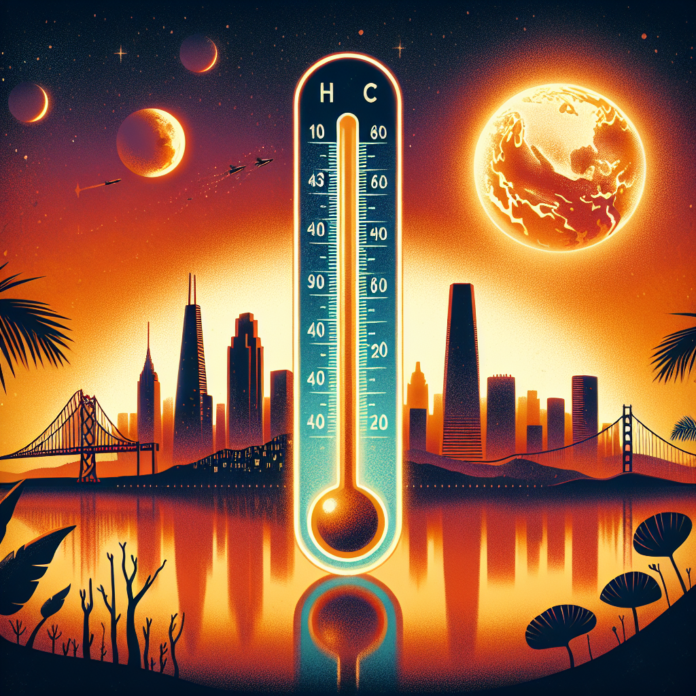Record-Breaking Summer Heat in 3 Bay Area Cities Due to Climate Change
3 Bay Area Cities Had Hottest Summer in History as Climate Change Pushes Temps Up
According to recent data, three Bay Area cities experienced their hottest summer on record, underscoring the growing impact of climate change on local weather patterns. These cities, known for their typically mild Mediterranean climate, saw unprecedented temperature highs that have raised concerns among climate scientists and residents alike.
Record-Breaking Temperatures
The cities in question—San Francisco, Oakland, and San Jose—reported sustained periods of extreme heat throughout the summer months. San Francisco, often characterized by its foggy and cool summers, hit record highs that left many residents seeking relief in air-conditioned spaces, a rarity for the city. Oakland and San Jose also saw significant temperature increases, with each city setting new records for consecutive days above 90 degrees Fahrenheit.
Impact on Public Health and Infrastructure
The soaring temperatures have had a broad range of effects on public health and infrastructure. Hospitals reported increased cases of heat-related illnesses, such as dehydration and heatstroke. Vulnerable populations, including the elderly and those with preexisting health conditions, were particularly at risk. Additionally, the heat put a strain on the electrical grid, leading to power outages and increased energy costs for residents.
Environmental Consequences
The extended heat wave also exacerbated environmental issues such as drought and wildfires. The Bay Area, already struggling with water scarcity, saw reservoir levels drop even further. Wildfires, fueled by dry conditions and high temperatures, became more frequent and more destructive, threatening homes and natural habitats.
Long-Term Climate Trends
Climate scientists warn that these record-breaking temperatures are not isolated incidents but part of a broader trend of global warming. According to data from the National Oceanic and Atmospheric Administration (NOAA), global temperatures have been rising steadily over the past century, with the past decade being the warmest on record. The Bay Area’s recent heatwave is a stark reminder of the urgent need for climate action.
Calls for Action
Local governments and environmental organizations are calling for immediate action to mitigate the effects of climate change. Proposed measures include increasing green spaces in urban areas to reduce the urban heat island effect, investing in renewable energy sources, and implementing stricter emissions regulations. Public awareness campaigns are also being launched to educate residents about the importance of water conservation and energy efficiency.
Community Response
Residents have shown resilience in the face of these challenges, coming together to support one another and advocate for change. Community cooling centers were established to provide relief during peak heat periods, and local organizations distributed water and other necessities to those in need.
Looking Ahead
As the Bay Area continues to grapple with the realities of climate change, the experiences of this past summer serve as a critical lesson. The need for comprehensive climate policies and community preparedness has never been more evident. By taking proactive steps now, the Bay Area can hope to mitigate some of the most severe impacts of a warming world.
The record-breaking summer of 2023 has left an indelible mark on the Bay Area, highlighting the urgent need for collective action to address the climate crisis.
